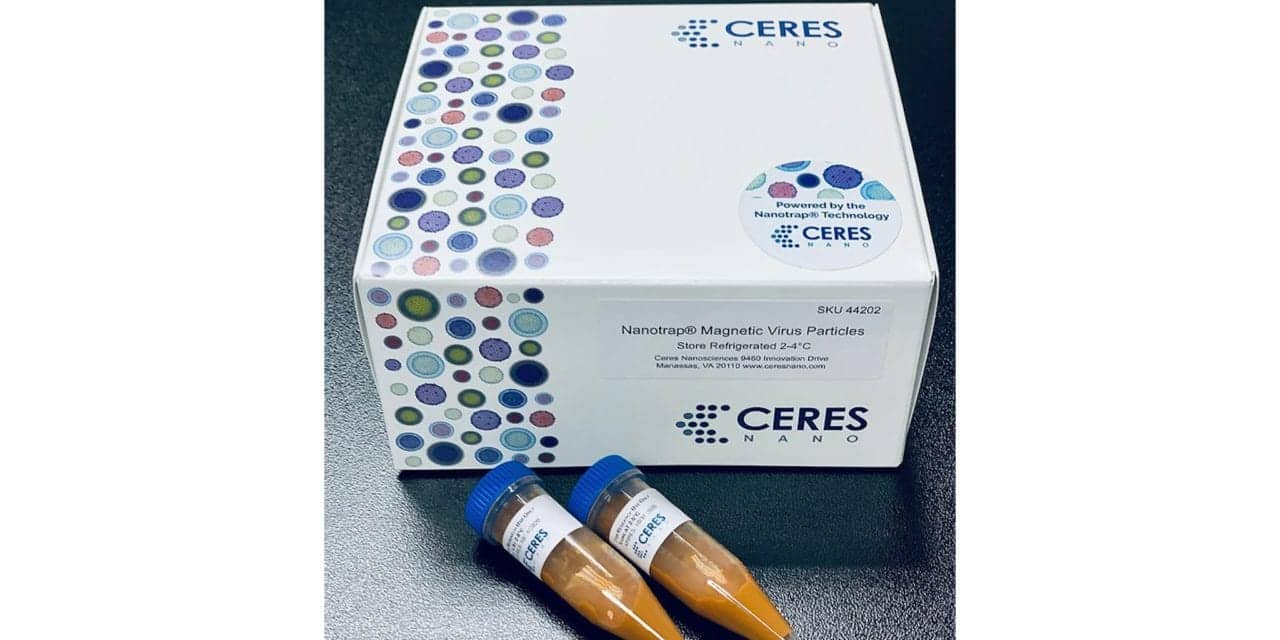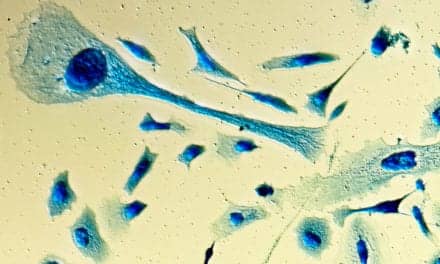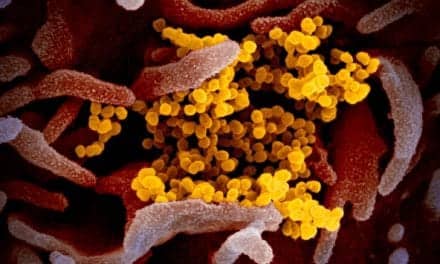Ceres Nanosciences, Manassas, Va, a privately held company that makes products to improve diagnostic testing, has been awarded a contract from the National Institutes of Health (NIH) Rapid Acceleration of Diagnostics (RADx) initiative. The contract will support an expansion to increase the manufacturing capacity of Ceres’ Nanotrap Virus Particles for covid-19 testing. Ceres’ Nanotrap Virus Particles improve diagnostic testing for SARS-CoV-2 by eliminating the need for RNA extraction kits, reducing sample processing time, and improving the sensitivity of the downstream assays in point-of-care systems and in high-throughput laboratory-developed tests.
The RADx initiative was launched by NIH to speed innovation in the development, commercialization, and implementation of technologies for covid-19 testing. One of the goals of the RADx initiative is to expand the national testing capacity to more than 6 million people per day. Key to increasing this capacity is addressing the reliance on supply-chain-limited RNA extraction kits. For example, in its April 2020 SARS-CoV-2 Diagnostic Testing Survey, the Association of Molecular Pathology reported that more than 80% of diagnostic testing laboratories had experienced supply chain shortages of testing reagents such as RNA extraction kits, causing delayed or decreased testing.
Ceres expects to increase its manufacturing capacity to be able to supply Nanotrap particles for at least 2 million SARS-CoV-2 tests per week in early 2021. Since Nanotrap Virus Particles also improve diagnostic testing for influenza virus and RSV, this scale-up will support multiplexed testing of respiratory viruses during this winter’s flu season. “We are laser-focused on doing our part to increase the nation’s testing capacity,” says Ross Dunlap, Ceres Nanosciences CEO. “Knowing that we can do that, while simultaneously improving the quality of the tests being offered, motivates us each and every day.”
“With previous funding from DARPA and Schmidt Futures we proved that our technology improves detection of a wide range of respiratory viruses, including influenza viruses, coronaviruses, and respiratory syncytial virus,” says Ben Lepene, Ceres Nanosciences CTO. “This new support from the NIH is going to help us deliver it at scale.”
This project is supported by the NIH Rapid Acceleration of Diagnostics (RADx) program and has been funded in whole or in part with Federal funds from the National Institute of Biomedical Imaging and Bioengineering, National Institutes of Health, Department of Health and Human Services, under Contract No. 75N92020C00021.
For more information, visit Ceres Nanosciences.





